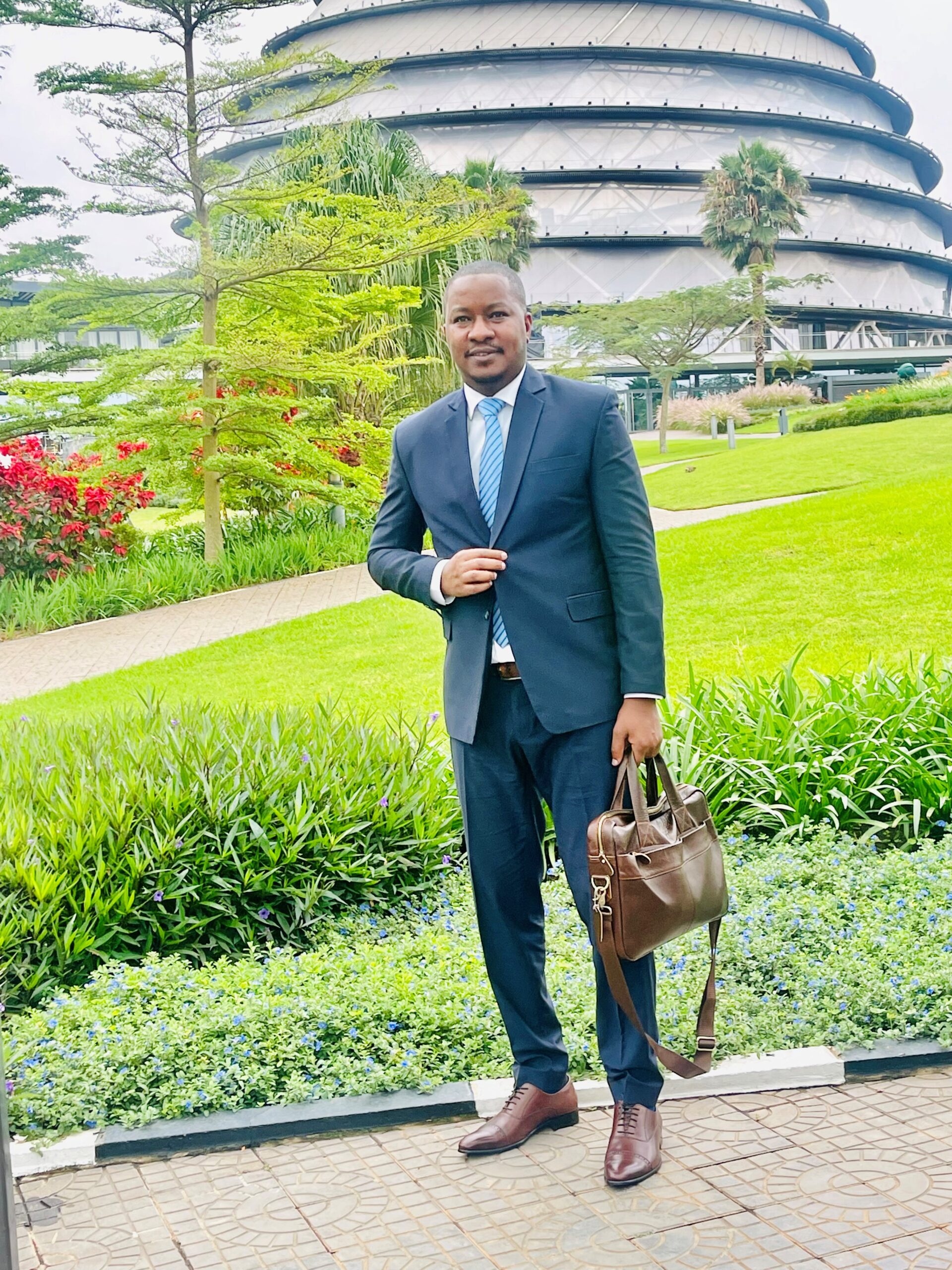This series features Women’s Land Rights Champions within USAID to learn more about their work. We’re pleased to share this interview with Semaly Kisamo, USAID Tanzania’s Project Management Specialist for Policy.

Tell us about yourself
I joined the USAID/Tanzania mission in July 2016 as the Project Management Specialist for Policy in the Economic Growth (EG) Office, which is responsible for planning, managing, and evaluating projects and activities in support of USAID/Tanzania’s 2nd development objective (empowerment, productivity, and engagement of Tanzanians aged 15 to 35 increased). The EG Office is also responsible for implementing Feed the Future, Power Africa and other Presidential Initiatives in Tanzania and coordinating with Regional and Global programs.
As a key member of the Resilience and Food Security Team (RFS) within the Economic Growth Office, my role includes providing technical direction in designing programs that seek to accelerate Tanzania’s adoption of more effective policies to drive broad-based agricultural sector growth in the country. In addition, I oversee activity performance, financial reports, and manage the assigned portfolio. My work also involves building and strengthening relationships with key relevant partner institutions, including the Prime Minister’s Office, the ministry
of Agriculture, the Ministry of Industry and Trade, the Ministry of Lands, Housing, and Human Settlements Development, and other key national, sub-national and non-governmental institutions in Tanzania to encourage optimal coordination, harmonization, and alignment of U.S. Government policy programs.
Currently, I serve as the Agreement/Contracting Officer’s Representative (A/COR) for USAID/Tanzania’s Feed the Future flagship policy activity, SERA BORA ( “Better Policies”). Prior to that, I managed the Feed the Future Tanzania Land Tenure Assistance (LTA) activity. Before joining USAID/Tanzania, I worked for over 12 years with the Government of Tanzania (GoT) as a Senior Economist in the Ministry of Finance and the Ministry of Home Affairs. Before serving in the GoT, I worked as a Programme Officer Grants for the Foundation for Civil Society Limited, an international Non-Governmental Organization. I hold a Bachelor of Arts in Economics and a Master of Arts in Public Policy specializing in Development Policy from Crawford School of Public Policy in Australia.
Why are women’s land rights and resource governance important to your work? And to other USAID development work?
The demand for and pressure on Tanzania’s land and resources is growing rapidly. Global interest in acquiring arable land for commercial agriculture combined with population growth, rapid urbanization, and conservation pressure is driving competition for Tanzania’s increasingly scarce land. As part of USAID/Tanzania’s Country Development Cooperation Strategy (CDCS 2020-2025), which puts a lot of emphasis on empowering women and youth, USAID funded the Land Tenure Assistance (LTA) project from the period of 2015-2021, implemented in the Iringa and Mbeya regions. The project worked to clarify and document land ownership, supported land use planning initiatives, increased local residents’ understanding of land use and property rights, established land ownership, and ensured broad, inclusive community involvement in a transparent titling process, particularly for women and youth. According to Tanzania’s recent population census, Tanzania will grow by over 10 million individuals by 2030, putting pressure on social services, yet creating great economic potential if appropriately managed. Tanzania’s economy relies heavily on farming, raising animals, fishing, preserving wildlife, and managing forests. Together, these industries contribute about 65% of the country’s gross domestic product (GDP), make up 60% of the earnings from exports, and provide employment for over 80% of the population. Out of this, 65 percent is dominated by women and youth, who comprise a large segment of the labour-force in rural areas.
What are some of the biggest challenges in helping women secure land rights and what are some things being done to overcome them?
Tanzanian law grants equal land rights to men and women. The reality, however, is that women own and control only a small portion of land assets, and, in many communities, are either unaware of their land rights or are prohibited from owning land because of traditional patriarchal norms. Tanzania’s marriage and inheritance laws are often unfavorable towards women and their children, and frequently dispossess them of their rightful land.
The success of the Land Tenure Assistance project (LTA) rested heavily on its consistent focus on community engagement and education. Specialized awareness training on land rights was provided to women and men so that women’s rights to occupy land were well understood and implemented. In addition, awareness training was provided to all women’s groups and small groups of residents at the hamlet level to ensure that men and women have a thorough understanding of their rights and responsibilities, and of the legal framework underpinning the registration of village land in Tanzania. By the end of the project’s implementation, as a result of the strong emphasis on raising awareness about women’s land rights in Tanzania, LTA achieved a 50/50 gender balance of land claims.
What are some of USAID’s successes in the area of women’s land rights?
When the Land Tenure Assistance (LTA) project began in 2015, the participation of women in village meetings was very low due to men’s traditional dominance in public gatherings. Culturally, women do not speak freely before men in a public meeting with the exception of very few educated and courageous women. It is a deeply entrenched cultural belief that men must have dominance in land ownership. Women do not have equal rights in making decisions on financial and property related matters. For example, although working on the farm is a major role for most women, the husband controls all aspects of selling the agricultural products. Women are also often burdened with many other concerns such as tending to children, working in gardens, and making sure that children attend school while men might spend their time drinking local beer.
LTA acknowledged the difficulties encountered by women in its designated villages and implemented specialized training programs specifically for them. These training initiatives fostered a safe space where women could openly address concerns related to land rights, free from any apprehension or pressure from men. As a result of this special training, women were empowered to claim their land rights. In LTA’s target villages, the ratio of formal land certificate ownership was evenly divided between men and women. LTA also initiated women’s focus groups to empower women in rural economic activities and small businesses such as gardening, poultry, and piggery, and to teach them about credit and savings skills.
Is there anything else you’d like to share?
Local sustainability is a critical component in systematic rural land registration. In order to have a successful system that is inclusive, it is imperative to work closely with indigenous communities and to empower district and village land institutions to carry out the work on their own. This will ensure sustainability and enable indigenous communities to develop their capacity and skills, and to carry forward the process independently once outside support ends.


